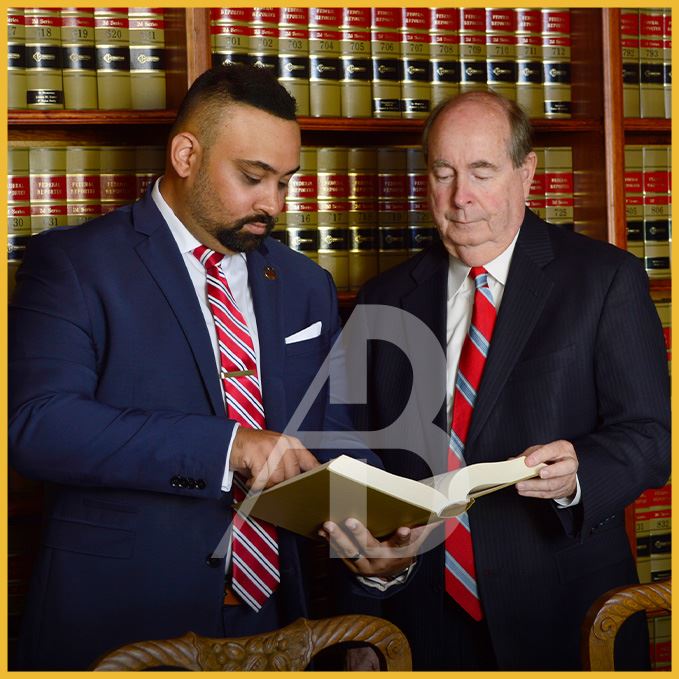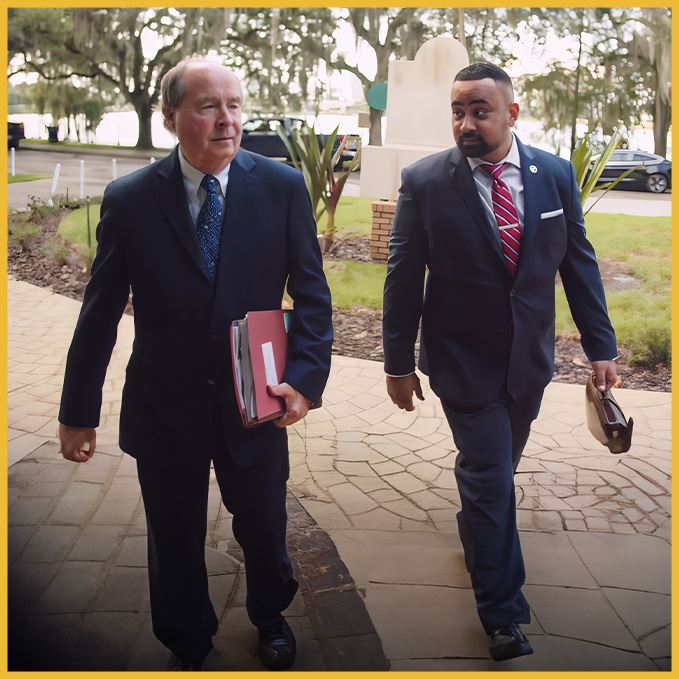
SOBRIETY CHECKPOINTS IN ORLANDO
Have You Been Charged with DUI at a Sobriety Checkpoint?
Sobriety checkpoints, known to some as mobile checkpoints, or roadblocks, are legal under the Florida state constitution and work to stop drivers at random to check for intoxication. Checkpoints are temporary and randomly placed stops where drivers are detained briefly and interviewed while suspected drunk drivers are also subjected to sobriety tests. If you have been charged with DUI at a sobriety checkpoint, be sure to speak with our Orlando DUI attorneys who can fight for your rights in court.
Ali & Blankner is an elite criminal defense firm that has over 85 years of collective legal experience, much of it having to do with contesting DUI charges. Along with our perfect 10.0 Superb score from Avvo, we have been fighting for clients since 1986, meaning we understand how to beat criminal charges and have been very successful in doing so.

OUR WINNING STRATEGY
Why You Want Ali & Blankner In Your Corner
-
Fighters & Advocates in the Courtroom
The criminal lawyers in Orlando at Ali & Blankner are aggressive advocates who are willing to do whatever it takes to obtain a favorable resolution. We are committed to defending your rights and protecting your future.
-
Prosecutor Insight & Knowledge
All of our Orlando criminal attorneys are former prosecutors and understand how the other side thinks. When you work with our team, you get a group of individuals who knows how to prepare and fight a winning case.
-
Large Firm Results, Small Firm Attention
Our criminal defense team in Orlando understands the ins and out of the legal industry, and we have the infrastructure and resources to handle any case that comes our way. We focus on your case specifically to ensure we get the best result for you.
-
Dedicated & Experienced CounselWith over 35 years of experience and thousands of clients helped, Ali & Blankner has the skills, resources, and determination to get you the best possible result.


Get the Help You Need Today
Our firm can challenge any DUI arrest stemming from a sobriety checkpoint, no matter how intoxicated police accuse you of being. Ali & Blankner exists to fight criminal charges to uphold the rights of the accused. Do not wait to obtain knowledgeable legal counsel who can begin your defense!
Begin your defense today by speaking with our Orlando DUI firm by calling (407) 753-1312!


KNOCKOUT RESULTS
-
Case Dismissed Battery & Resisting Arrest
We represented an individual charged with battery on an officer and resisting arrest, successfully getting the case dismissed.
-
Case Dismissed DUI & Citations
Ali & Blankner worked to get a case dismissed involving a client with both a DUI and citations.
-
Case Dismissed Battery & Assault
Ali & Blankner secure a case dismissal on behalf of a client charged with battery.
-
Case Dismissal Drug Possession
Ali & Blankner obtained a case dismissal on behalf of a client charged with Drug Possession.
-
Case Dismissal Trespassing
Ali & Blankner obtained a case dismissal on behalf of a client charged with Trespassing.
